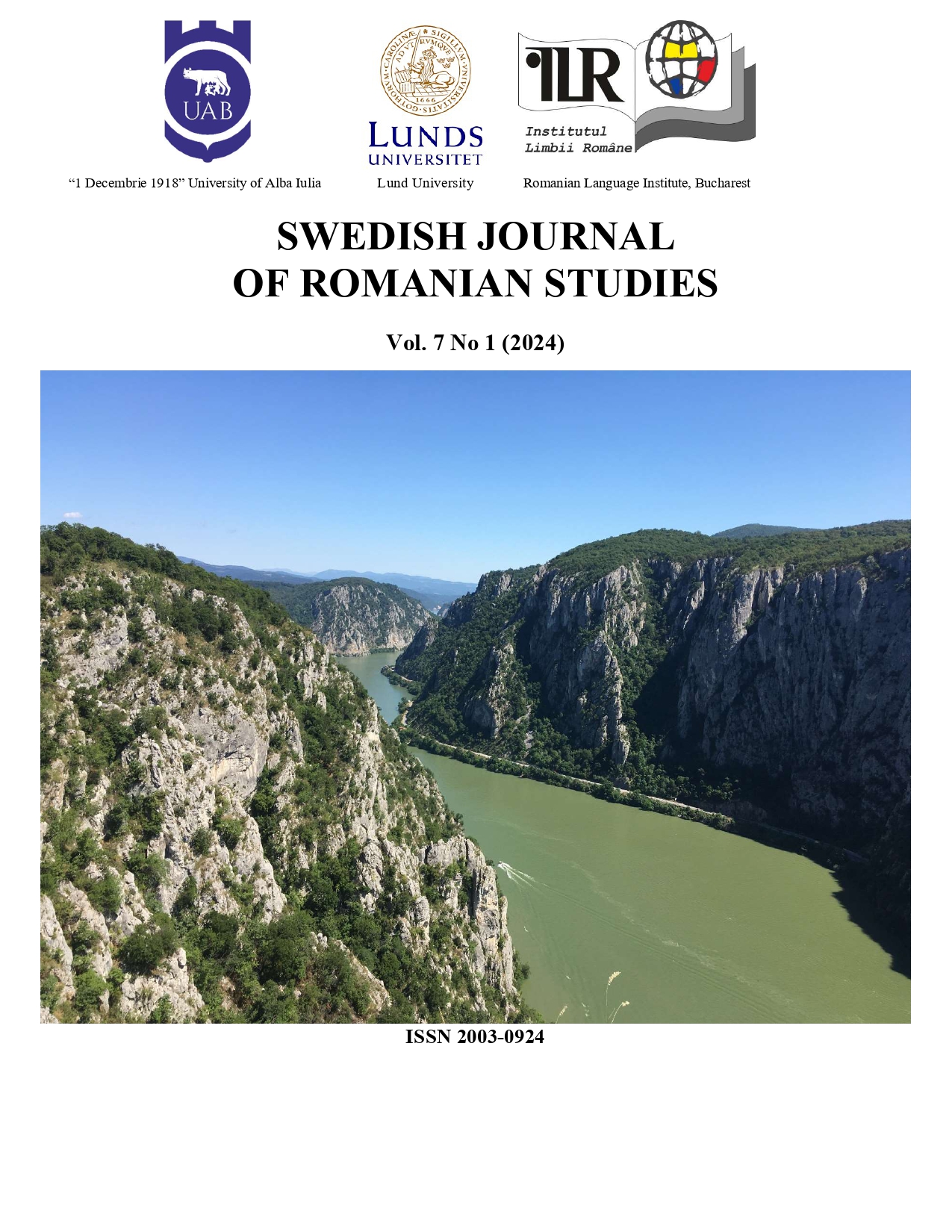An overview on the 20th-century Central-European novel
DOI:
https://doi.org/10.35824/sjrs.v7i1.26035Keywords:
literary history, Central Europe, novel studies, cultural geography, transnational studiesAbstract
Over the past century, the history of Romanian literature has been dominated by nationalist approaches, necessary for the consolidation of a stable cultural identity. However, the concept of cultural identity involves changing and migratory components as well, many related to its links with other cultural identities, each of them with its own literature. This book review provides insights into the scholarly significance of Dicționarul romanului central-european din secolul XX [The Dictionary of Central European Novel in the 20th Century] coordinated by Adriana Babeți and edited by Oana Fotache, understood as a project that maps a transnational literary phenomenon. The study is examined for its uniqueness, specific linguistic diversity and multicultural scope: 250 entries about works initially published in one of the fourteen languages spoken in the region, including French and English as international languages, either part of the canon or more marginal and less known. Other reasons include its adequate combination of analysis and synthesis; the extensive team research carried out over three decades; and its socio-political relevance nowadays. The review highlights the historical, cultural, and academic contexts in which the dictionary was published, the avatars of the concept of Central Europe, several characteristics of the Central-European novel, and details about its structure, sections and features. The presentation mentions a few limitations about the availability of the titles in the languages of the region and the admitted gender imbalance and indicates several research audiences possibly interested in alternative ways of approaching novels in the context of globalization.
References
Babeți, A. (ed.). (2022). Dicționarul romanului central-european din secolul XX / The Dictionary of Central European Novel in the 20th Century. Iași: Editura Polirom.
Cornis-Pope, M., & Neubauer, J. (eds.). (2010). History of the Literary Cultures of East-Central Europe: Junctures and Disjunctures in the 19th and the 20th Centuries. Amsterdam/Philadelphia: John Benjamins Publishing. (Original work published 2004).
Ungureanu, C. (2004). Europa Centrală, geografia unei iluzii / Central Europe: The Geography of an Illusion. București: Curtea Veche.
Ungureanu, C. (2002). Mitteleuropa periferiilor / The Mitteleuropa of the Peripheries. Iași: Editura Polirom.
Downloads
Published
How to Cite
Issue
Section
License
Copyright (c) 2024 Monica Manolachi

This work is licensed under a Creative Commons Attribution-NonCommercial 4.0 International License.
Authors who publish with this journal agree to the following terms:
a. Authors retain copyright and grant the journal right of first publication with the work simultaneously licensed under a Creative Commons Attribution-NonCommercial 4.0 International License that allows others to share the work with an acknowledgement of the work's authorship and initial publication in this journal.
b. Authors are able to enter into separate, additional contractual arrangements for the non-exclusive distribution of the journal's published version of the work (e.g., post it to an institutional repository or publish it in a book), with an acknowledgement of its initial publication in this journal.
c. Authors are permitted and encouraged to post their work online (e.g., in institutional repositories or on their website) prior to and during the submission process, as it can lead to productive exchanges, as well as earlier and greater citation of published work (See The Effect of Open Access).

